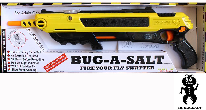Often entertaining to watch, and presenting the spectrum of color in their plumage, birds are beautiful as well as an important part of our ecosystem. However, when birds converge and overwhelm your environment, they can pose health and safety issues to humans with their feces, which destroy roofs and gutters, and by stripping gardens and crops of foodstuffs.
The most destructive birds are pigeons, sparrows, starlings, gulls, Canada geese, woodpeckers, crows, and grackles. Because of the corrosive properties of bird fecal matter, it damages rooftop air conditioning units, gutters, roofs, downspouts, and roof shingles. Parasites and fungi live in fecal matter, further presenting health risks to humans. Nesting birds sometimes build nests in the gutters and downspouts of your home, blocking water flow and ultimately resulting in roof damage. If you find that you have a problem with birds as pests, follow these guidelines to help rid them from your home and landscape:
Some homeowners have had luck with flavor deterrents in discouraging woodpeckers from damaging wood, as well as stopping Canada geese from disturbing grass. Whatever method you decide to employ in dealing with birds as pests, make sure that the bird in question is not a protected species. It may be illegal to remove nests of endangered species, or otherwise disturb them. Check with your local cooperative extension office for help or if you have questions.

Have Fun Getting Those Pesky Flies! Get rid of them with the original salt gun. Use a pinch of salt, pump the handle, turn the safety switch, aim, and fire. Kills flies within 3 feet with virtually no mess. Won't harm glass, windows, or walls. Check out Bug-A-Salt today!
Cats that dig through trash are not only annoying, the trash they leave behind poses a health and safety hazard. While ...
Discover MoreThere are a few simple measures that you can take to deal with nuisance dogs, instead of shooting at them. If the dog ...
Discover MoreDepending on where you live, one of the more common types of pests that you can find yourself faced with is a pigeon. ...
Discover MoreThere are currently no comments for this tip. (Be the first to leave your comment—just use the simple form above!)
Copyright © 2026 Sharon Parq Associates, Inc.
Comments